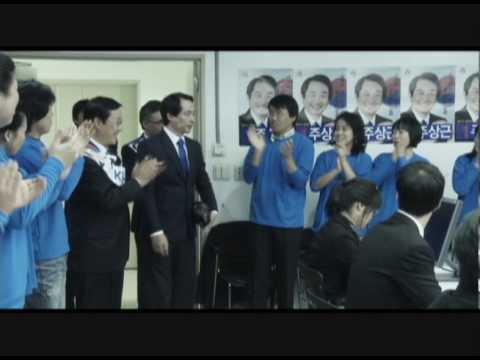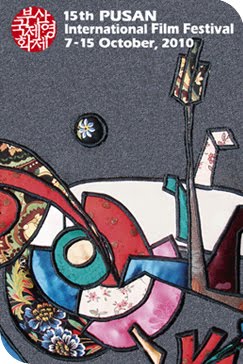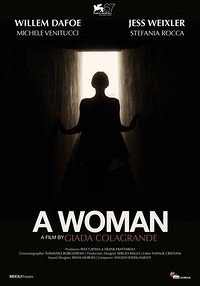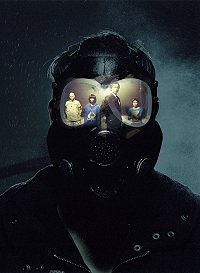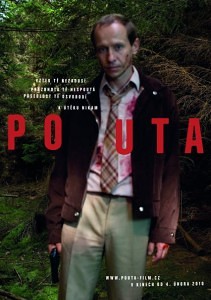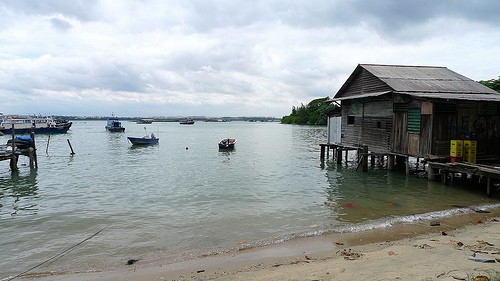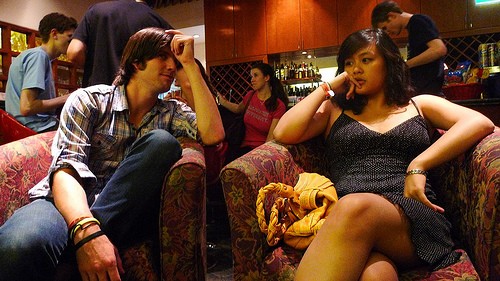A few weeks ago, me and seven other friends (yes, it was a lot of people) took the KTX bullet train down to Busan, the second most populous city in Korea, for the Pusan International Film Festival (PIFF).
I know the name is confusing, but “P” and “B” have the same Hangeul character: ㅂ. The name of the festival was chosen before the Romanization of Hangeul had been standardized.
Anyway, the festival, which is in its fifteenth year, ran October 7-15 and was oriented towards the Haeundae Beach area of the city. Headliners at the festival were Zhang Yimou, Oliver Stone, Willem Dafoe, Aishwarya Rai and Juliette Binoche.
The festival is considered one of the biggest in Asia and is a great opportunity for tourism in Korea outside of Seoul.
We got into the city late Friday and spent most the night crawling around various pubs. On Saturday morning four people in our group got up at 5 a.m. to get tickets to the movies. The box office only allowed each patron to only buy two tickets for a single film at a time for movies on that day, so we had to choose wisely. Two of the three movies we got tickets for had been shown at Venice earlier in the year. We figured we were in for some fantastic cinema.
The first film we saw was “A Woman,” a film by Giada Colagrande, Dafoe’s wife, (Dafoe starred). This was to be film’s international premiere and we were very excited to get seats for the screening.
A Woman
After Colagrande and a bearded Dafoe walked into the theater, the mood and expectation of this film elevated quite significantly. However, from the get-go things weren’t looking too great. The projectionist managed to forget to focus the projector and the first two minutes or so of credits were completely blurry.
The film never managed to be completely in focus and in the Q & A session after the screening, Colagrande mentioned that the top had also been chopped off.
A young woman falls in love with a famous novelist and travels with him to his home in Southern Italy. There, her obsession with the memory of his dead wife begins to consume her.
The most noticeable problem with this film is its stale, rigid dialogue. Colagrande, who also wrote the screenplay, conceded in the post-film Q & A that she had to refer to her husband for clarification on certain dialogue points because English is not her first language. It showed. Conversations were slow, short and felt as though they were written by a high school student for a drama class.
Dafoe, who normally plays characters with charisma, was completely subdued as widower/writer Max Oliver. Jess Weixler, known from her role in the horror-comedy “Teeth,” played Julie, Oliver’s new love, was just as boring as she looks.
The dialog was so rigid and boring it was impossible that these two people were actually in love with each other. There was no back-story. We were supposed to immediately understand that they were in love with each other, without them actually showing it.
Sadly, “A Woman” suffered because of its absurd pretensions and all that was left is a flat love story with terrible dialogue filmed in a very beautiful locale.
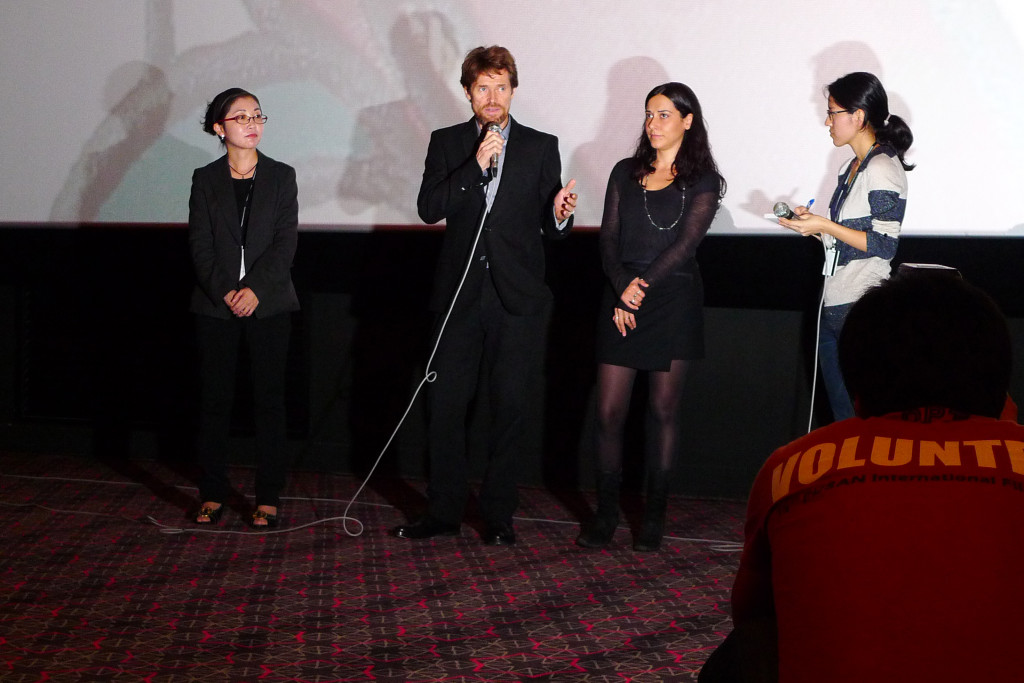
“A Woman” is Colagrande’s third film and second working with Dafoe. Hopefully in the future Dafoe will have the balls to tell his wife that her movie is boring and flat. There’s not a lot I can say about this movie because nothing really happened. Julie wandered around a beautiful Italian villa and went crazy for no apparent reason. That’s about it.
The Q &A session after the movie was kind of hilarious because one Korean person had to ask basic questions about the film’s plot, or lack thereof. Others asked mundane questions like, “What roles have you drawn from to prepare for this role?” It was cool to get up close to an actor like Willem Dafoe, but the movie he came representing was bad. Not even fun-bad, just boring, pretentious-bad.
Anti Gas Skin
This movie was infinitely more enjoyable than “A Woman,” but for different reasons.
Anti Gas Skin, or Bangdokpi (방독피) is fourth feature by the Kim Brothers, a pair of twins hailing from Incheon. Most of their films have found their way around the festival circuit (with a screening at Venice this year), but there are no plans for a wide release for this one in particular.
24famespersecond.net describes Anti Gas Skin:
Four people are after a serial killer who wears a gasmask. Each has their own reason. Mi-Joo, who wants to be killed by the serial killer, to free herself from the trauma of her disfigurement. Sang-Kun Joo, a political candidate who has been threatened that ‘if he wins the election, he will be killed.’ Bo-Sik, a traffic warden, who wants to catch the serial killer because he thinks he is a superhero. And finally Patrick, who thinks the killer murdered his girl friend. But the ‘gasmask killer’ is not just one person. The identity behind the mask is mysterious. In the end, four of them wear gasmasks and wander around the city of death. What is the nature of the gasmask?
The movie didn’t make a lot of sense. The plot swirled around a series of characters until the climax and the viewers were supposed to figure out for themselves how they were connected.
There was this girl with a beard that may or may not be a construct of her own imagination, an American soldier who wants to be Korean but has an inexplicable Texan/Hick/Mentally-Challenged accent come in and out throughout his performance.
The crazy plot, absurd acting and general nonsense of this film made it much enjoyable more in an ironic way more than anything.
The movie didn’t make a lot of sense, but it was much better than the pretentious trite of “A Woman.”
Here is the film’s trailer:
Pouta/Walking Too Fast
This movie was by far the best we saw during our weekend. This crime noir, directed by Radim Spacek, was billed at PIFF under an English name of “Walking Too Fast.” However, the film’s Czech name, “Pouta,” translated into English (“Shackles”) makes more sense.
Twitchfilm.net describes “Pouta:”
Czechoslovakia, 1982. The totalitarian regime seems interminable and imperishable. Antonín, a member of the secret police, uneasy, tyrannical, perhaps even psychopathic, is percolating with unvoiced anger and desperation. Bored with everything, he aims his demons at a seemingly clear but in fact unattainable target – a young woman named Klára. It is not love, not passion but a burning desire for the illusion of escape from the clutches of drabness and boredom. Antonín’s absurd attempt to win Klára over pits him against not only the regime’s traditional enemies but also his own people and the system itself. When he breaks the rules of the organization he serves, it is neither a civic gesture nor a political one. It is rebellion, purely personal and wholly savage.
The lead actor in the film, Ondrej Malý, who played the secret police officer, was quite scary in channeling his authority all the other characters he encountered throughout the film.
Spacek did an excellent job of setting up the feeling of Eastern Europe behind the iron curtain. The colors, set design and clothing all matched the era. For the first two minutes or so of the film, I had a hard time discerning when this film was actually shot.
This is the kind of movie I want to see exposure beyond the art house/film festival circuit. It has all the elements of a character study on par with any “Oscar season” movie released in December in the States.
Here is the trailer:
Overall, the weekend was excellent. While the movies may not have been exactly what we were expecting, it was enjoyable nonetheless. It was my second trip to Busan and I very much enjoyed the city. It has a nice beach and quite a few things to do. I would recommend anybody living in East Asia to check out the film festival next year when it comes back to town.

